Dear Friend,
On the decluttering chopping block this week: All my work and handouts from Old English, a class I took in 2006.
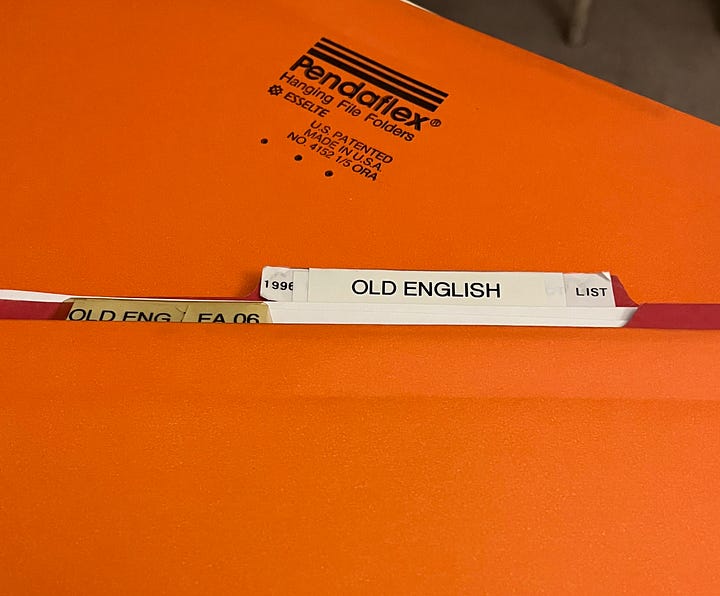
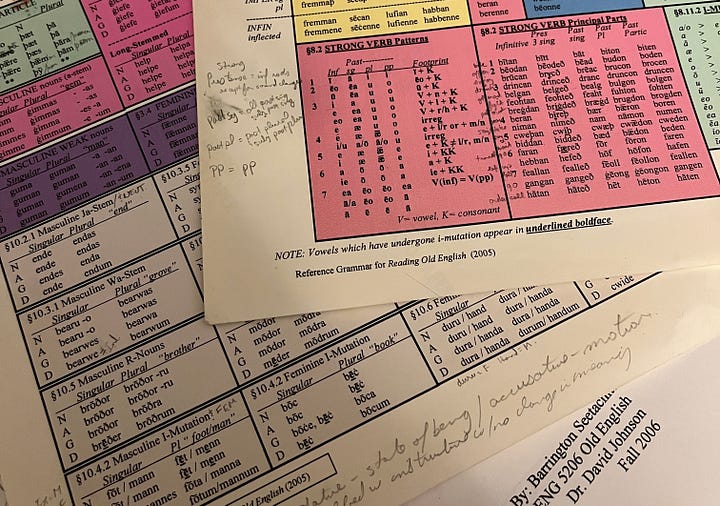
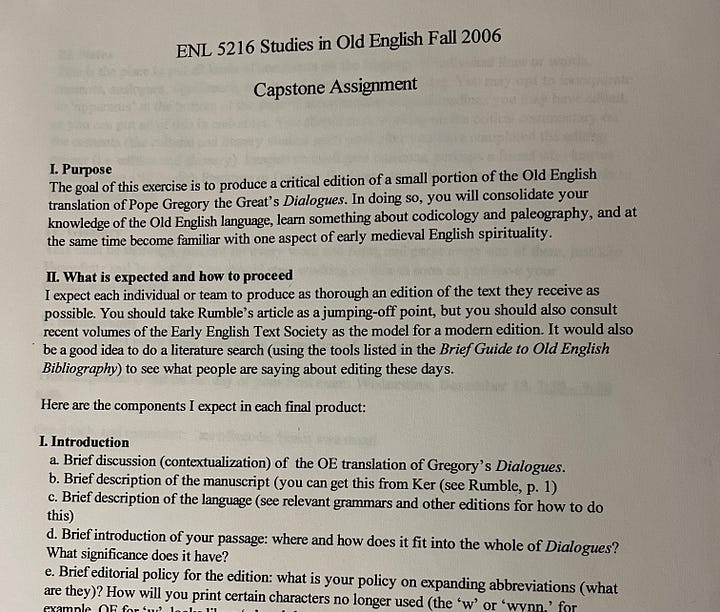
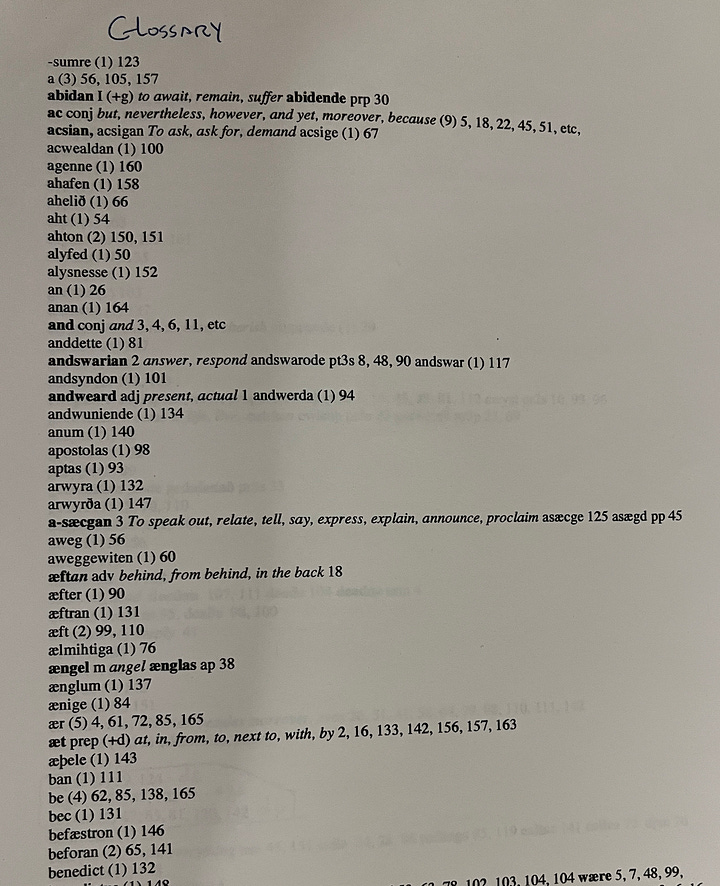
Because this class was long ago and faded in memory, I thought of it with vague affection as I pulled the folder from the filing cabinet. But rifling through the pages, I remembered that, for a semester, this class was the bane of my existence—the cause of many late nights spent brute-forcing my way through translations, I believe that wee-hour-of-the-morning-energy was the source of these comics, inspired by the Dialogues of Pope Gregory the Great.
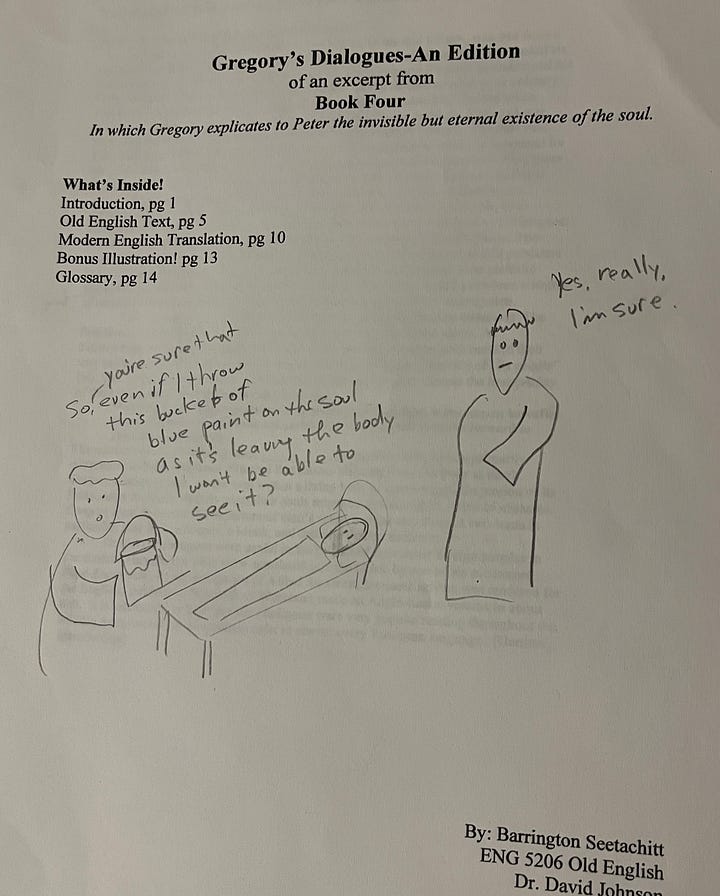
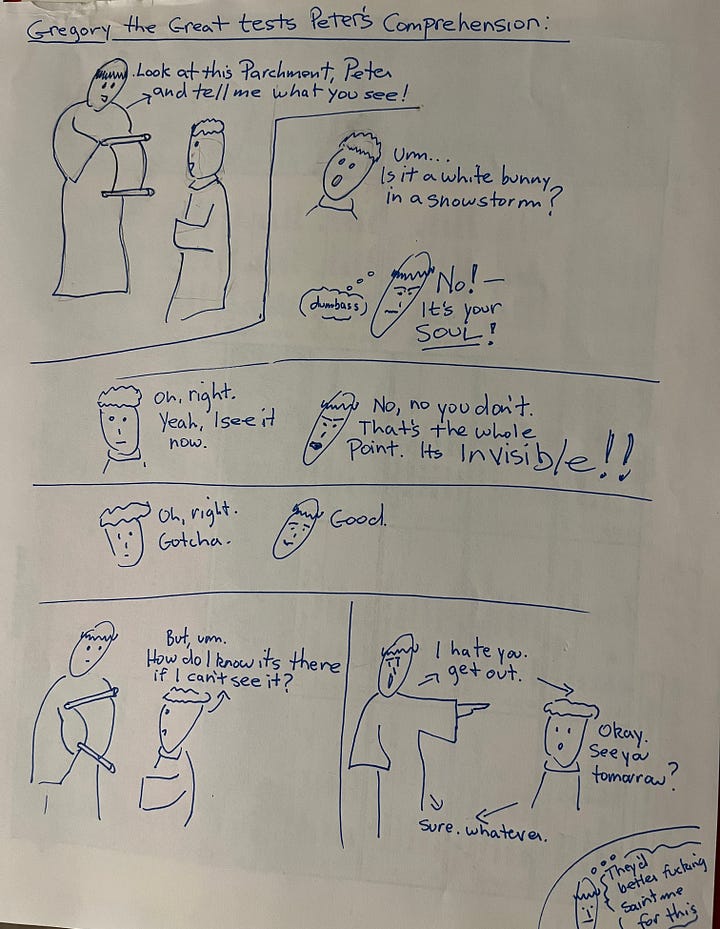
I submit that, as much as I’d like to subscribe to the “spark joy” methodology of decluttering, the act of throwing items out is more complicated than that.
On a personal level, getting rid of this stack of papers is a surrender of both past and future, a statement that not only says, “I will never again be the person I was when I drew these,” but also, “In this life on earth, my future will not include learning Old English, thus activating an unused neural pathway that would be used to learn Old English. Moreover, I’ll never accomplish my sci-fi dream of becoming the first human to use that unused 90% of my brain, transforming myself into a supercomputer-like omniglot.”1
Instead, I am coming to acceptance that I will die without ever speaking Old English, Japanese or more than the five phrases of French I remember from high school.2
On the other hand, on a societal and even a global level, throwing these papers into the recycle bin is an act of hope and faith. It says, “I believe that in the future there will still be libraries and bookstores, and available textbooks; that there will continue to be an accessible internet and a power grid to support it; that we will continue to live in a world of plenty and not on a post-apocalyptic planet where bookshelves and files of private citizens have become the only remaining repository of knowledge.”3
One folder down… roughly 3000 to go.
Any secrets?
Barrington
I mean this in the poetic sense, since the “humans only use 10% of our brains” thing is a apparently a myth.
At a certain point, maybe all decluttering is death decluttering.
If my tone is not clear, I am poking fun of myself here, but also, I totally get how people who have lived with scarcity become hoarders.




When I opened an old notebook from an English history class, I found a page with this written in the margin: "Help! I'm being held captive in this class. Please rescue me!!" I hope than no student in the many classes I subsequently taught as a professor wrote anything similar!
As a former hoarder, I made the change slowly, then all at once. As an example, I wanted to scan all letters I received and kept - there were hundreds - and sometimes I wish I had, even if I never read them again. When it happens, I think of sand mandalas being brushed away and remember they served their purpose.